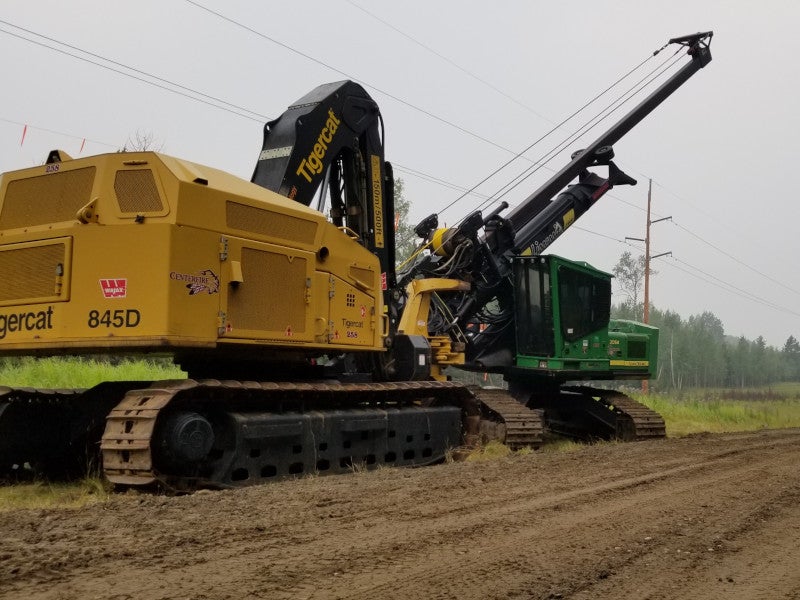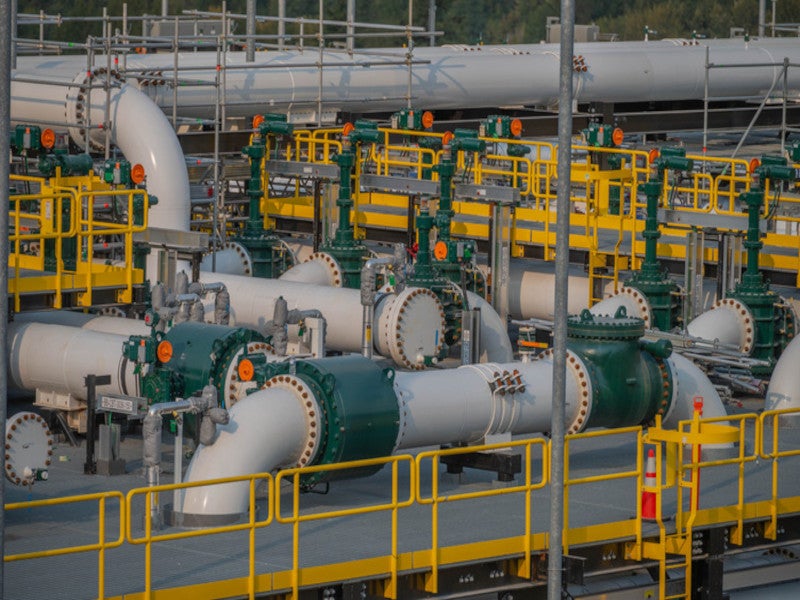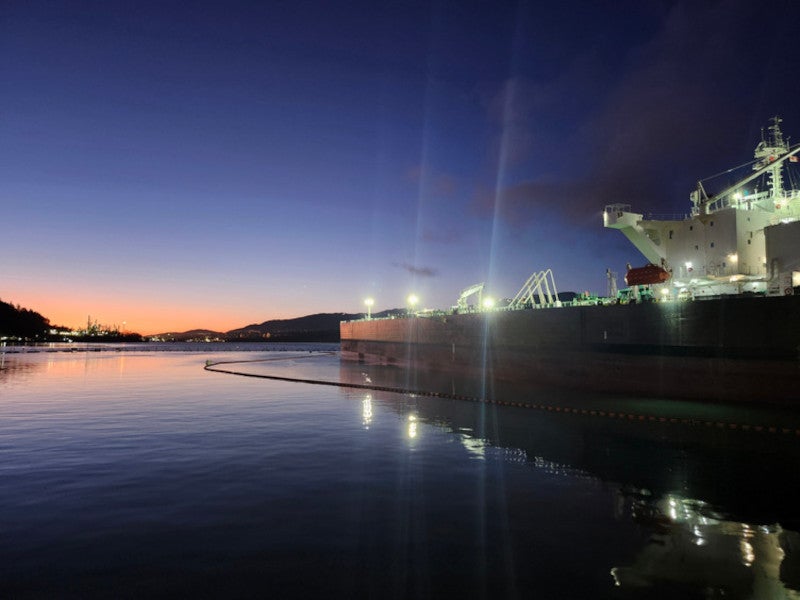The Trans Mountain pipeline expansion project is an expansion of the 1,150km Trans Mountain pipeline, which first commenced operations in 1953.
The existing pipeline begins in Edmonton, Alberta, and terminates on the west coast of British Columbia (BC) in Burnaby.
The expansion involved laying an additional pipeline of 980km length alongside the existing route, with an estimated cost of C$30.9bn ($22.38bn).
The project achieved mechanical completion in the third quarter of 2023, while the first oil was also loaded into Line 2 from the Edmonton terminal in April 2024. The expansion officially began commercial operations in May 2024.
Trans Mountain pipeline expansion details
The existing Trans Mountain pipeline transports refined products, synthetic crude oil and light crude oil, and is also capable of transporting heavy crude oils.
The operator, Trans Mountain, has undertaken numerous expansion projects since 1953. 28% of the 1,150km pipeline system between Strathcona County, Alberta and Burnaby, BC is already twinned.
The pipeline expansion is designed to carry heavier oils as well as light crude oils. It comprises 980km of 36-inch and 42-inch diameter pipes.
The reactivated section comprises Hinton to Hargreaves (150km) and Darfield to Black Pines (42km).
73% of the route utilises the existing right-of-way, while 16% follows the other linear infrastructure such as telecommunications, hydro or highways. The remaining 11% traverses a new right-of-way.
The expansion also involved the construction of three additional offloading berths at the Westridge marine terminal in Burnaby to help tankers to load.
Pump station details
To support the expanded pipeline system, 11 new pump stations will be added along the route, along with one additional pump station on the existing pipeline. Ten of the new pump stations will be added at existing facilities.
A total of 23 electrically-powered pump stations are located at intervals determined by terrain and pipeline diameter, to maintain product flow. The pump stations ensure that the pressure decreases progressively between stations as the oil moves away from one station’s discharge point and towards the suction of the next.
The pump stations also monitor the discharge pressure and can automatically shut down the line. The control centre in Edmonton continuously monitors automatic leak detection and containment systems. An automatic emergency shutdown will isolate the station and prompt local personnel to investigate, in the event of a leak alarm.
Trans Mountain pipeline terminals
The Edmonton terminal, the starting point of the Trans Mountain pipeline system, receives products from across Alberta through 20 incoming feeder lines. The terminal has 35 storage tanks with a combined shell capacity of 8 million barrels (Mbbls), storing the product before its shipment through the pipeline.
The Kamloops Terminal, comprising two storage tanks with a shell capacity of 160,000 barrels, acts as a hub for the local distribution of products from Edmonton and as a receiving point for products from northeastern British Columbia.
The Sumas pump station and terminal, situated in Abbotsford, British Columbia, feature six storage tanks with a total capacity of 715,000 barrels. The Trans Mountain pipeline is connected to the 111 km-long Trans Mountain Puget Sound pipeline system from the Sumas pump station and terminal. The system delivers crude oil to Washington state refineries in Anacortes, Cherry Point and Ferndale.
The Westridge marine terminal, located within Port Metro Vancouver, is equipped to accommodate Aframax-sized vessels. In addition to loading tankers, the facility manages the receipt and dispatch of jet fuel to Vancouver International Airport via the Pembina jet fuel pipeline.
At the endpoint of the Trans Mountain pipeline system, the Burnaby terminal houses 13 storage tanks with a shell capacity of 1.68 million barrels. It functions as a local distribution point for crude oil and refined products to local terminals, the Parkland refinery and the Westridge marine terminal.
Contractors involved
Michels Canada, a construction company, constructed the Spread 7A section, which extends from the Fraser River crossing in Surrey to 232 Street in Langley.
The Kiewit Bonatti TMEP Partnership constructed the Spread 5B, an 85km segment of the pipeline in the Coquihalla–Hope region.
Simpcw Ledcor was engaged for the reactivation segments of the expansion project.
Cord, a design-build general contractor, was responsible for the Edmonton Terminal and all 12 pump stations included in the expansion project.
Canadian utilities services provider EPCOR was engaged for the design, construction, and maintenance of electrical power interconnection systems, including substations, switchyards, and transmission lines.
Midwest Pipelines, a pipeline construction company, was the contractor for the Spreads 1 and 2 pipeline in the Greater Edmonton and Yellowhead regions of Alberta.
Engineering, procurement and construction (EPC) company SICIM, in partnership with Ledcor, was responsible for the construction of the Spreads 3 and 4A pipeline in the North Thompson region of BC.
Pipeline construction company Banister was engaged for Spread 4B in the North Thompson region of BC, between Blue River and Darfield, and Spread 6 in the Fraser Valley.
The Surerus Murphy Joint Venture worked on Spread 5A in the BC interior, between Black Pines and the Coquihalla Summit.
Macro was responsible for part of the work in Spread 5B in the Coquihalla-Hope area.
The Kiewit Ledcor Trans Mountain Partnership served as the general construction contractor for a combination of facility and pipeline works in the Lower Mainland, including the Spread 7B pipeline construction in Coquitlam and Burnaby, Sumas Terminal, Burnaby Terminal, Westridge Marine Terminal and the Burnaby Mountain Tunnel.
Other companies involved in the expansion project include BP (Canada), Canadian Natural Resources, Cenovus Energy, ConocoPhillips, Imperial Oil, Marathon Petroleum (Canada), MEG Energy, Parkland, PetroChina (Canada) and Suncor.










